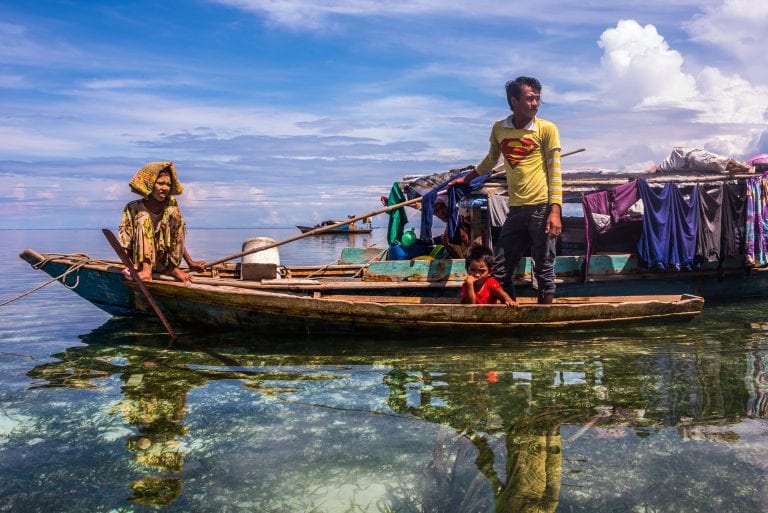Bajau Sea Nomads: Citizens without a land
The people of Bajau have spent most of their lives living on the waters of Southeast Asia, where they have developed into sea-dwelling beings with human bodies. Since immemorial, they have spent most of their lives in boats and living off the sea without a place to be called a motherland.
They have no sense of time and age and have no clocks, calendars, birthdays, and the likes to celebrate. These are our Bajau friends, sometimes called “sea gypsies,” unlike other “homo sapiens” on Earth. Their origins remain unknown; hence, their history and place of birth are less known. Bajau was used to identify the boat-dwelling population of Sulu or those who still use the boat as living quarters. They live a seaborne lifestyle and use small wooden sailing vessels such as the perahu. Bajau people are the most dominant ethnic group on Tawi-Tawi Island in the Philippines. They have a unique culture and different ways of doing things, and research has shown that, as of 2010, they were the second-largest ethnic group.

History has favored us by telling us that they are an ethnic group of Mali origin. Bajau people have lived almost all their lives on the water for centuries. They reside in Southeast Asia, in the seas Southwest of the Philippines. People without officially written history to boast of. Their story is deeply rooted in their folklore and traditions, with oral history passed from generation to generation.
One of the tales captures the basis of their origin and how they got the name “Bajau.” According to the tale, there was a man named Bajau. He looks giant in stature, and his people always follow him to the water because of his body mass. His body mass would displace enough water so the river would overflow, making it easy for the people to get enough fish.
In the end, they came to call on him for the sole purpose of helping people to harvest fish. His neighboring tribes got jealous of him because of his kind nature and the opportunities he had created for his people. The neighbors plotted to kill him by throwing poison arrows at him. Bajau survived all the challenges that surfaced. His neighbors gave up, and his people lived on. Making their living mostly off fishing, Bajau people live on long houseboats known as Lepas. Placed mostly on water off Indonesia, Malaysia, and the Philippines, of which they usually come onto land to trade or seek shelter during storms.
Due to their exposure to the water, they have developed a mastery of the ocean that’s hard to find. First, juveniles learn to swim and catch fish early in their lives. Then, per history, most of them are free divers experts who can dive down to depths more than 230 feet and stay submerged 60 feet underwater for several hours.
Research published in the journal cell 2018 revealed that Bajau people have spleens 50 percent larger than the average human spleen. This gives the more extraordinary ability to stay underwater. In addition, scientific research has shown that when one swims in water, the spleen contracts, and stored oxygenated red blood cells are released into the bloodstream—this aids in spending long hours in the water.
These people seem to be wonderfully made beings. However, because of the time they spend in the water, most of the Bajau people have ruptured eardrums due to the pressure beneath the sea, and some deliberately perforate their eardrums purposely to make swimming easier.
Language in use.
Most Bajau people are bilingual in their national language, Malay. Malay is the official language in education, blended with the queen’s (English) language. Government officials are using this in transacting business. Parents speak the Malay language to their wards to prepare them better for their education. One of the languages they speak is called the Bajau language. Not all that common among them because it’s not used for educational and official purposes. To some natives, this is a sub-dialect within their setting since its being spoken by other ethnic groups.
Social Customs.
The people of Bajau have a rich culture practiced in all walks of life. A typical Bajau man epitomizes their culture and norms. Parents mainly choose partners for their children, but today’s situation may not be the same since we find ourselves in a modernized world, with technology taking the lead. Customary practices associated with marriage are preserved and observed whenever the need be. Religion plays a vital role in their lives, and many social activities are tied to Islamic practices. They fast, pray five times daily, and observe Islamic occasions, including marriage and naming ceremonies. Bajau people are unique and wonderfully made.
GCBM Contributor: Adjei Boakye